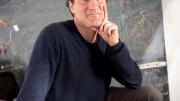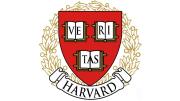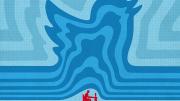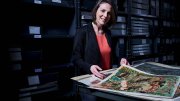Michael Brenner designed the popular General Education course “Science and Cooking” on successive nights between 11 p.m. and 3 a.m., after a lecture by Spanish chef Ferran Adrià moved him to teach science through physical transformations in food. “I decided this was the best possible way to teach physics to people with no desire to learn it,” he says. Now, in class and online, he’s “taught cooking to more than 100,000 people, which is sort of ridiculous.” The Glover professor of applied mathematics and applied physics grew up in the middle of Florida, where, he reports, “All there was were tennis courts, and all I did was play tennis.” At Penn, he traded tennis for a new obsession, physics, of which he knew nothing. Today, he laments, many Harvard students arrive so prepared that those with little background feel studying the sciences is impossible: “I couldn’t have been an applied math major here. I would’ve gotten scared.” With a Ph.D. from the University of Chicago, he joined MIT’s math department. “I still don’t know anything,” he asserts, “but at the time I really didn’t know anything.” Not knowing meant he could work on any problem he wanted, with anyone. He moved to Harvard’s School of Engineering and Applied Sciences because “this place was sufficiently interdisciplinary…so nobody knew what they were.” He resists defining the kind of research that interests him, suggesting instead that he uses math to answer “lots of different questions”: what happens when a water droplet splashes, or how bird beaks develop. Brenner’s Pierce Hall office doesn’t have a desk, making a visitor wonder how he gets his work done. “Why, is that bad?” he asks nervously. “Everything’s too fancy at Harvard. I decided it was better to just make my office into a living room.”
Harvard Portrait: Michael Brenner
Harvard Portrait: Michael Brenner
Applied mathematician Michael Brenner on not knowing anything

Michael Brenner
Photograph by Stu Rosner
You might also like
Harvard Faculty of Arts and Sciences Appoints a New Finance Dean
Warren Petrofsky joins at a crucial moment when the FAS is dealing with a $350 million deficit.
Martin Nowak Placed on Leave a Second Time
Further links to Jeffrey Epstein surface in newly released files
Harvard Graduates Can Donate Directly to Their Houses on Housing Day
A new initiative encourages small-dollar donations for improving student life.
Most popular
Explore More From Current Issue

What Bonobos Teach Us About Female Power and Cooperation
A Harvard scientist expands our understanding of our closest living relatives.

How a Harvard Hockey Legend Became a Needlepoint Artist
Joe Bertagna’s retirement project recreates figures from Boston sports history.






